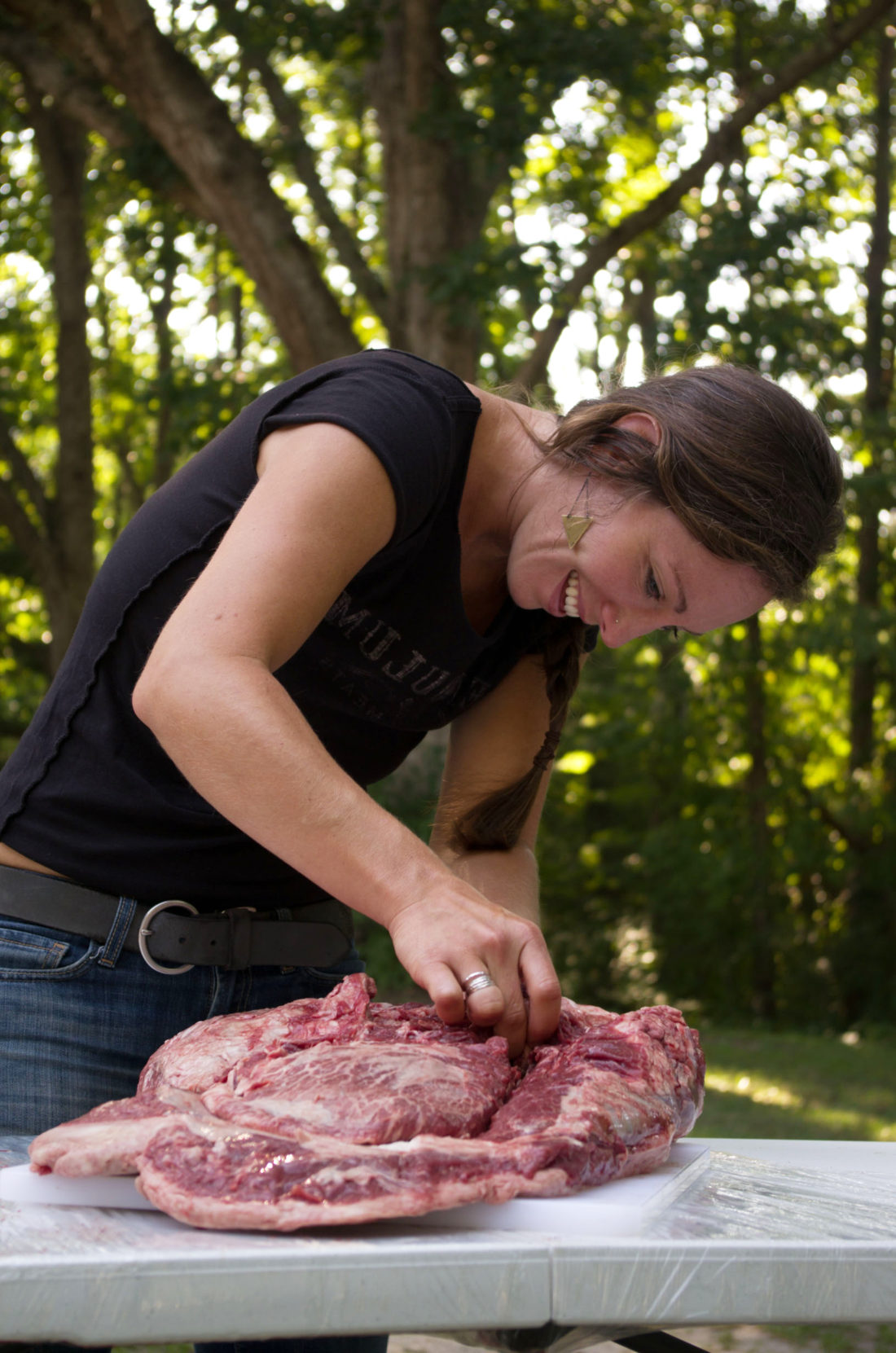As the coronavirus pandemic forces supersized meat processing plants across the U.S. to close or significantly reduce operations that in some cases processed as many as 35,000 hogs a day, many carnivores are turning to local farmers and butcher shops with short supply chains (see “Local Meat Providers Find Increased Consumer Demand,” May 14, Xpress). But they may be in for sticker shock, warns Meredith Leigh, author, butcher, chef and instructor.
“This crisis has woken people up to the fact that the system of supply is built in a way that is fragile,” she says. And since low prices have been built into the system, the true cost of producing meat is not reflected in the current paradigm. “What a lot of people might not be expecting is the higher cost associated with getting it from a local farmer, which presents a challenge for many people now.”
Leigh, who had been scheduled for a spring book tour to support the publication of The Ethical Meat Handbook: Revised and Expanded 2nd Edition, is instead sharing information on her website about how people can network, collaborate and even barter to obtain beef and pork. “A lot of my work right now is in helping people organize themselves and understand how they might create collaborative means of accessing meat. For example, someone might be rewarded for the work they contribute to organizing a collaboration, knowledge of butchery or storage space in a deep freezer,” she explains.
Leigh says there are platforms people can access to buy live animals that are raised for you with the meat becoming available after it goes to slaughter. She also recommends seeking lesser-known sources for processed meats such as the Hendersonville Community Co-op, Warren Wilson College Farm and a new website called Meat Suite, which connects consumers interested in bulk meat purchases with North Carolina farmers.
She is also introducing a series of online butchery, curing and preservation classes to help home cooks. “If we can ensure successful local farmers and educated home cooks, we have an extra layer of protection against major supply chain interruptions,” she says. “The current system is simply not sustainable.”
For more information and sources, visit Leigh’s blog at avl.mx/75k.




Before you comment
The comments section is here to provide a platform for civil dialogue on the issues we face together as a local community. Xpress is committed to offering this platform for all voices, but when the tone of the discussion gets nasty or strays off topic, we believe many people choose not to participate. Xpress editors are determined to moderate comments to ensure a constructive interchange is maintained. All comments judged not to be in keeping with the spirit of civil discourse will be removed and repeat violators will be banned. See here for our terms of service. Thank you for being part of this effort to promote respectful discussion.